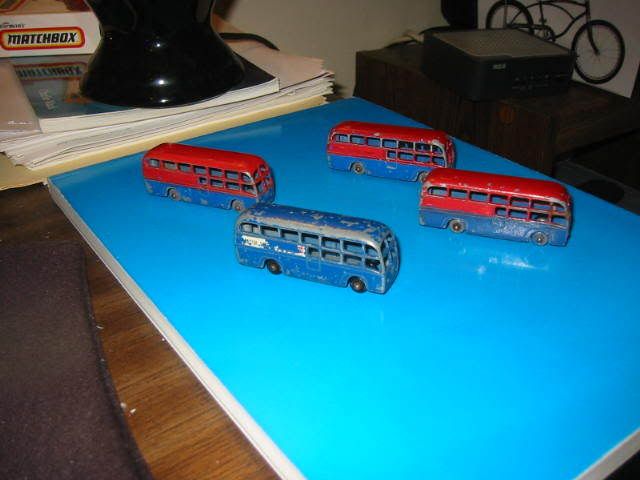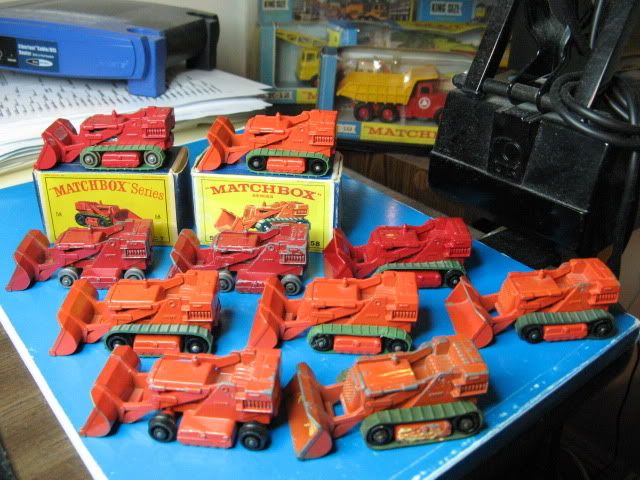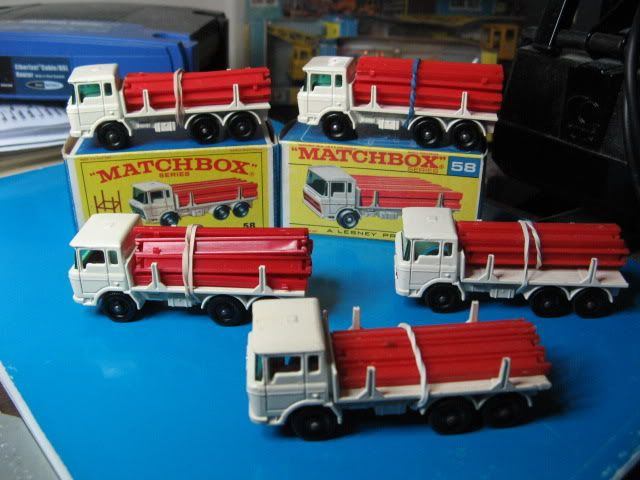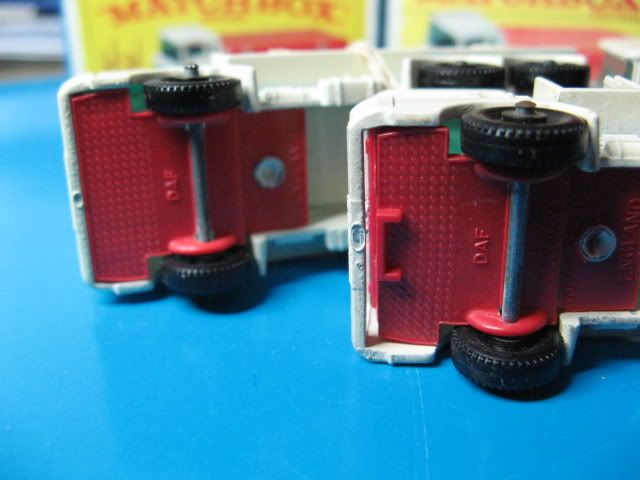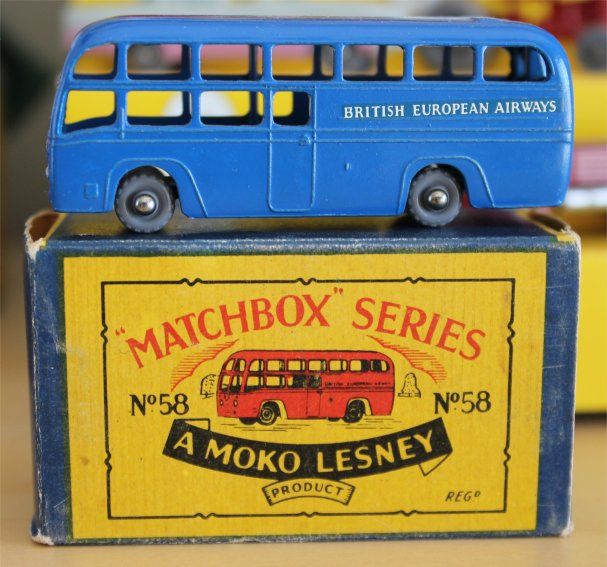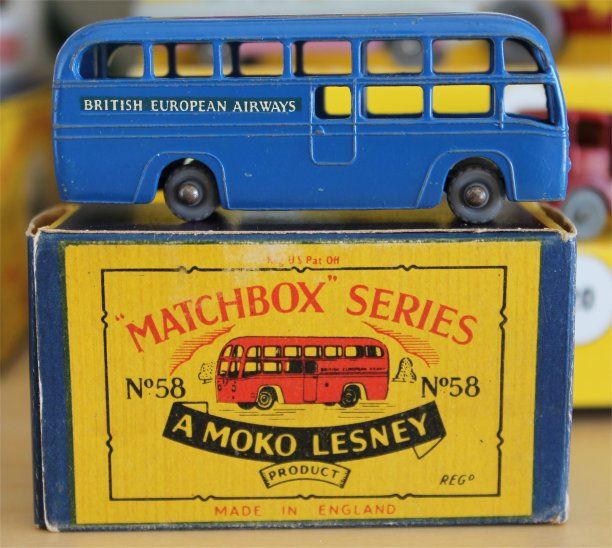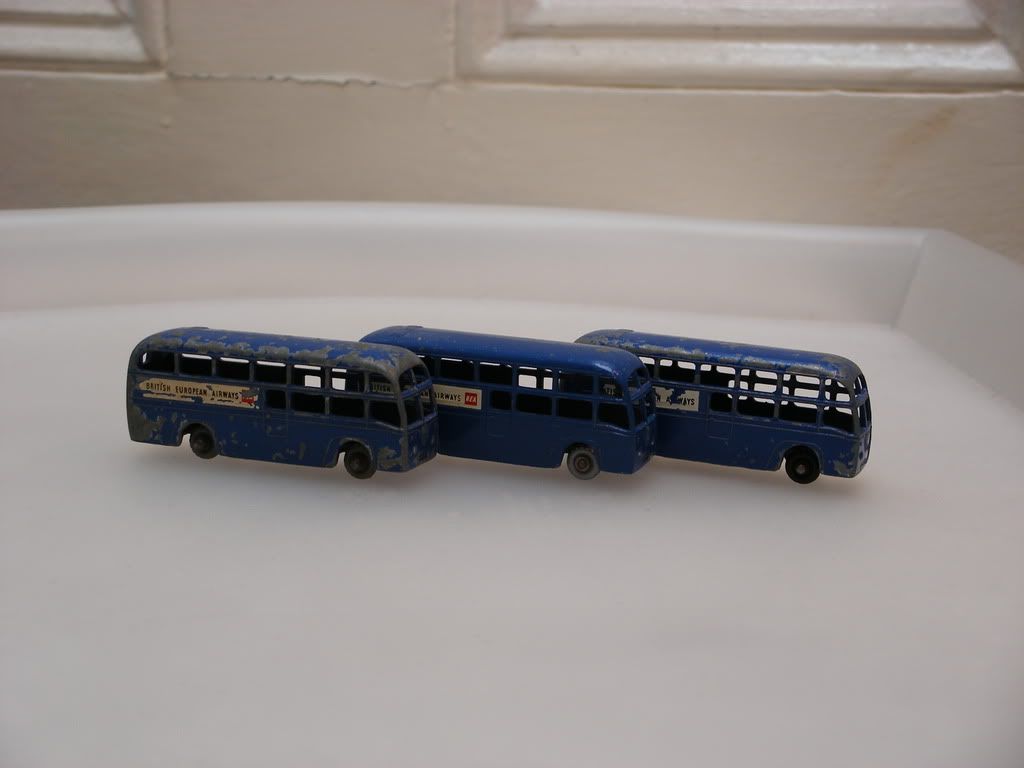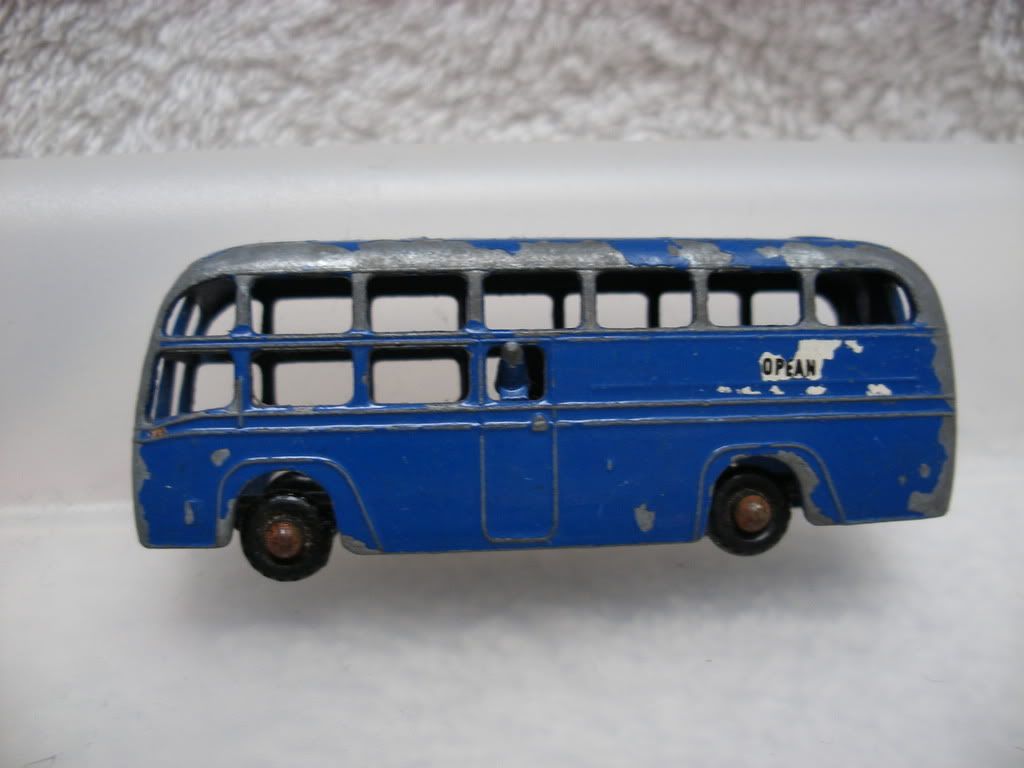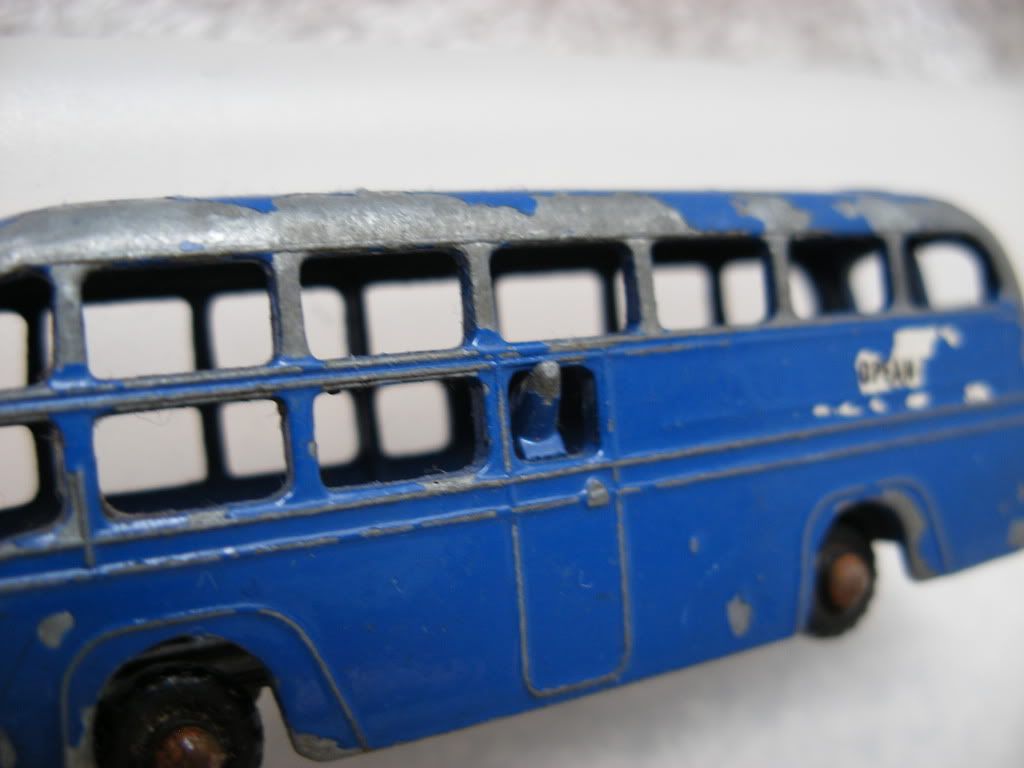58b Drot Excavator, issued 1962, length 65mm, box types D and E.
58c DAF Girder Truck, issued 1966, length 75mm, box types E and F.
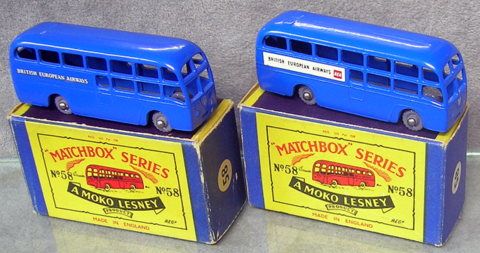
The Red and White decals can be in different position on the sides.
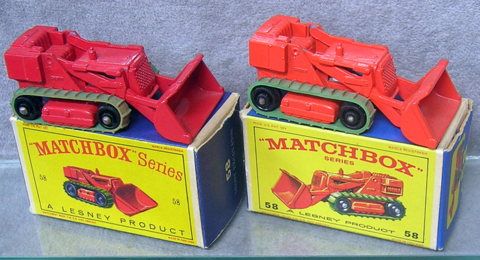
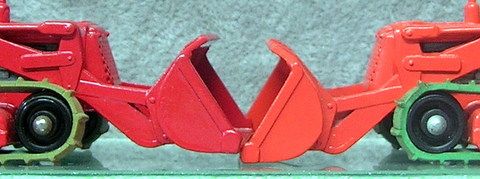
The open and closed gaps on the bucket arms, there are many variations on this model they can be seen on Nicks variation site.
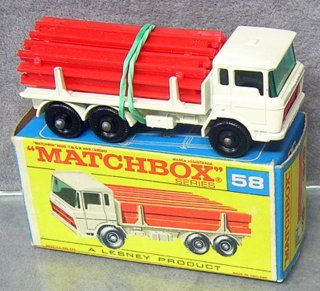
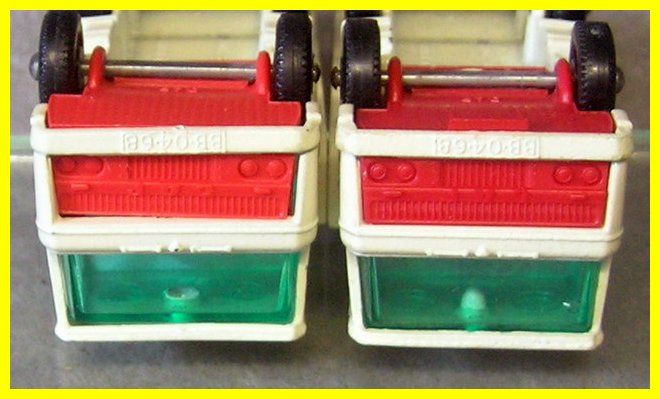
The internal cab plastic windows are fixed in with either a spread rivet or a stud pin to the roof.
George T.
